
A Southeast Asia Free from the Death Penalty: A Vision of Justice and Human Rights in ASEAN
October 10, 2024

10 October 2024 – On the International Day Against the Death Penalty, the ASEAN Parliamentarians for Human Rights (APHR) calls on the Governments to take decisive steps toward making Southeast Asia a death penalty-free region.
APHR is concerned that despite global momentum towards the abolition of the death penalty, several Southeast Asian countries continue to retain capital punishment, undermining human rights and justice in the region. As of 2024, countries such as Indonesia, Singapore, Malaysia, and Vietnam continue to use capital punishment, often justifying it as a deterrent to crime.
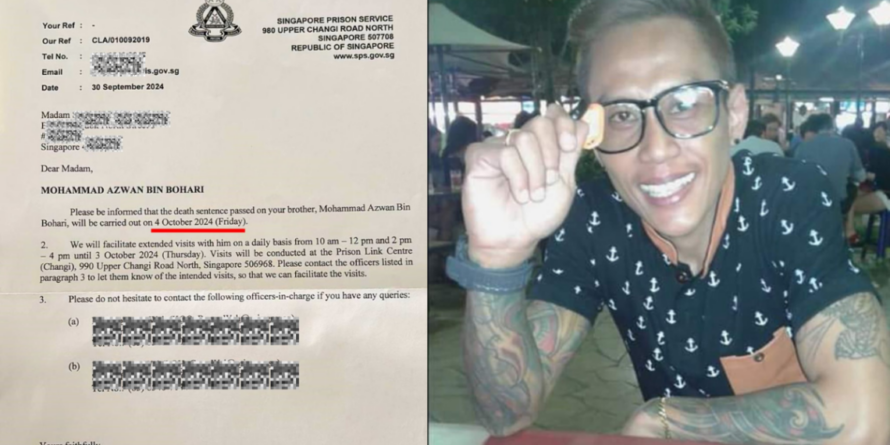
Mohammad Azwan Bin Bohari, 47, faces execution on 4 October 2024 for drug trafficking in Singapore. ©Wake Up Singapore
“Southeast Asia has the opportunity to lead the way in promoting human rights by abolishing the death penalty,” said Arlene D. Brosas, APHR Board Member and the Philippines’ Member of Parliament. She further said, “We are urging governments to enact immediate moratoriums on executions and take steps towards full abolition.”
Nevertheless, APHR takes note that there have been promising steps towards change, i.e. Malaysia has announced plans to abolish mandatory death sentences and has implemented a de facto moratorium on executions in 2018; The Philippines, after abolishing the death penalty in 2006, continues to resist calls for its reinstatement despite political challenges; and Cambodia has long been a leader in the region, having abolished the death penalty in 1989.
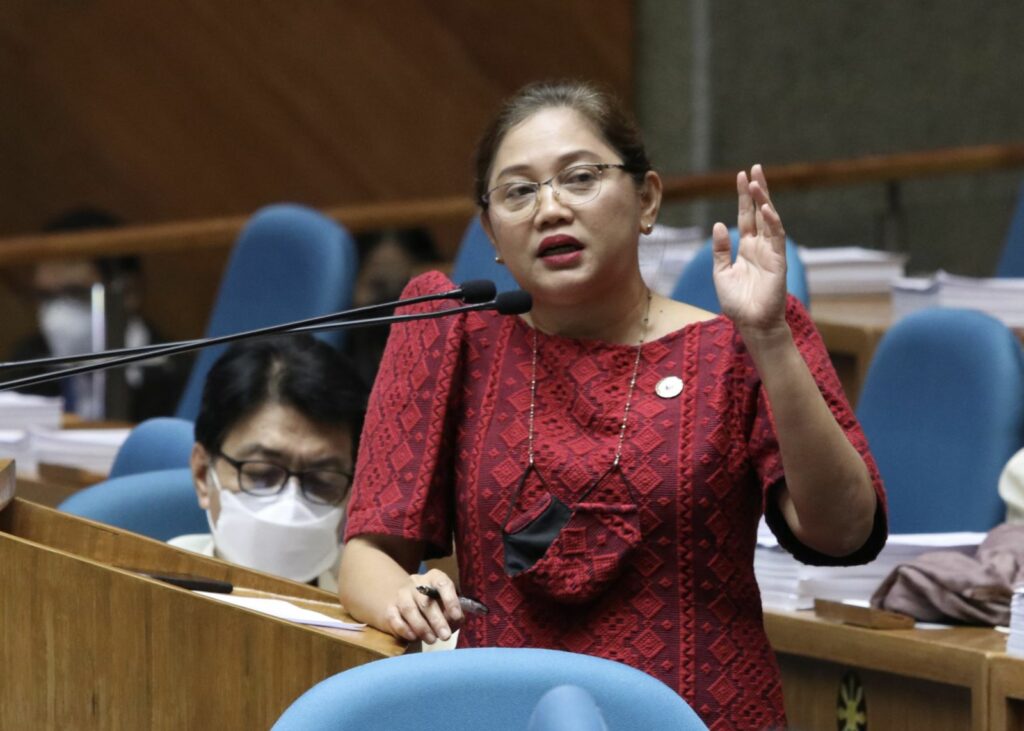
Arlene D. Brosas, APHR Board Member and the Philippines MP.
These developments indicate that change is possible, and therefore, APHR calls on all Southeast Asian countries to build on this momentum and work towards the complete abolition of the death penalty.
“We believe that a death penalty-free Southeast Asia is possible, and the time for action is now,” said Wong Chen, APHR Board Member and Malaysia’s Member of Parliament. He added, “We call on our leaders to show moral courage, adopt humane policies, and protect all citizens’ fundamental right to life.”
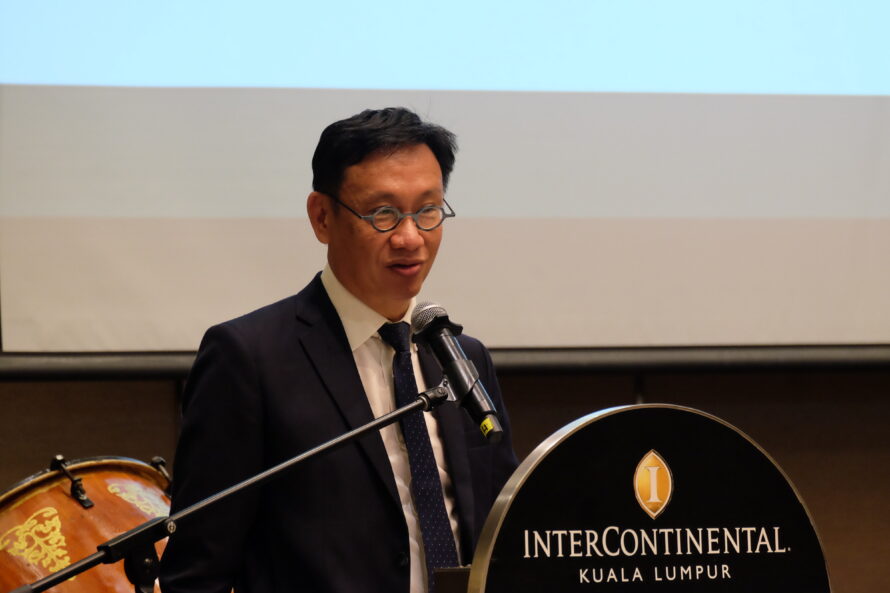
Wong Chen, APHR Board Member and Malaysian MP. ©APHR2024
“The death penalty is an outdated and inhumane practice that has no place in modern justice systems. By eliminating capital punishment, Southeast Asia can build a future based on justice, rehabilitation, and respect for human dignity,” said Kasit Piromya, APHR Board Member and former member of the Parliament of Thailand.
Research and experience from abolitionist countries have shown that the death penalty does not act as a more effective deterrent than life imprisonment. Therefore, APHR calls for Southeast Asian governments to move away from retributive justice and focus on creating a fairer system that addresses the root causes of crime.
APHR urges Southeast Asian governments to consider the following actions:
-
Immediate Moratorium: Implement an immediate moratorium on all executions as a first step towards abolition. This will allow for a meaningful public dialogue on the future of capital punishment while preventing further irreversible harm.
-
Review of Death Penalty Cases: Conduct comprehensive reviews of existing death row cases, with a focus on ensuring due process and fairness in trials. Special attention should be given to cases involving vulnerable groups, such as juveniles, individuals with mental health conditions, and those from marginalized communities.
-
Engage in Public Discourse: Facilitate public dialogue and education on the death penalty, its impacts, and the alternatives. Governments must engage with civil society organizations, victims’ families, and human rights advocates in discussions about the future of the death penalty.
-
Move Towards Legal Abolition: Work towards the full legal abolition of the death penalty, reflecting the growing global consensus and ASEAN’s commitment to upholding human rights. National governments should engage with international human rights mechanisms and seek technical and legal support in revising their laws.
“As parliamentarians committed to justice, we believe it is our responsibility to lead the charge in pushing for the abolition of the death penalty in our respective countries,” said Maria Angelina Lopes Sarmento, APHR Board Member and member of Parliament of Timor-Leste.
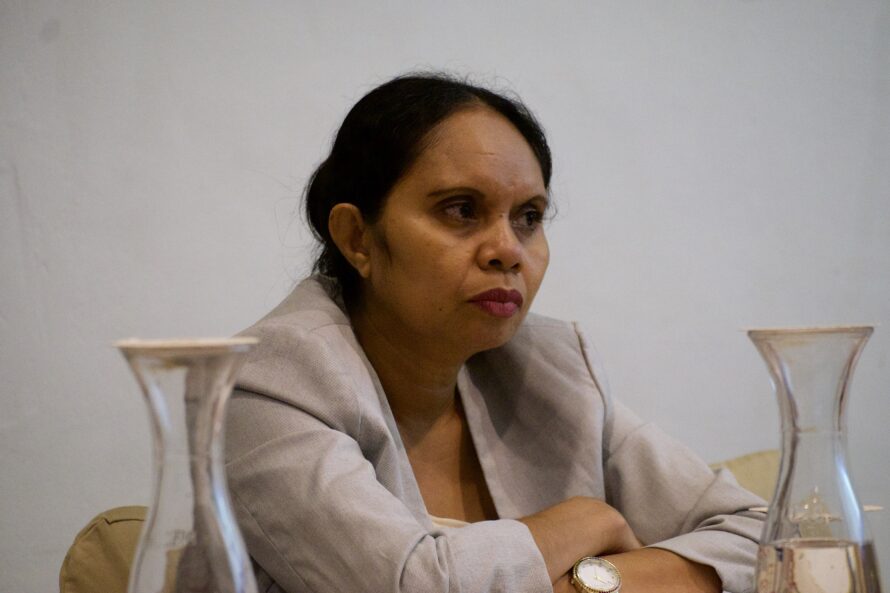
Maria Angelina Sarmento, APHR Board Member and Timor Leste MP. ©APHR2024
Furthermore, Charles Santiago, APHR Co-Chairperson and former Member of Parliament of Malaysia, also said, “The death penalty, at the very least, shall be considered as inhuman and degrading punishment and, thus, violates the prohibition against torture and other ill-treatment. In an era where human dignity and justice are paramount, it is time to end this practice.”
“By taking decisive action now, Southeast Asian nations can emerge as global leaders in human rights, reaffirming our commitment to a life-affirming justice system. We, the parliamentarians of Southeast Asia and members of APHR, stand ready to support our governments in this crucial endeavor,” said Mercy Chriesty Barends, Chairperson of APHR and member of Indonesia’s House of Representatives.
It is time for Southeast Asia to move towards a justice system that prioritizes rehabilitation, reform, and respect for life.
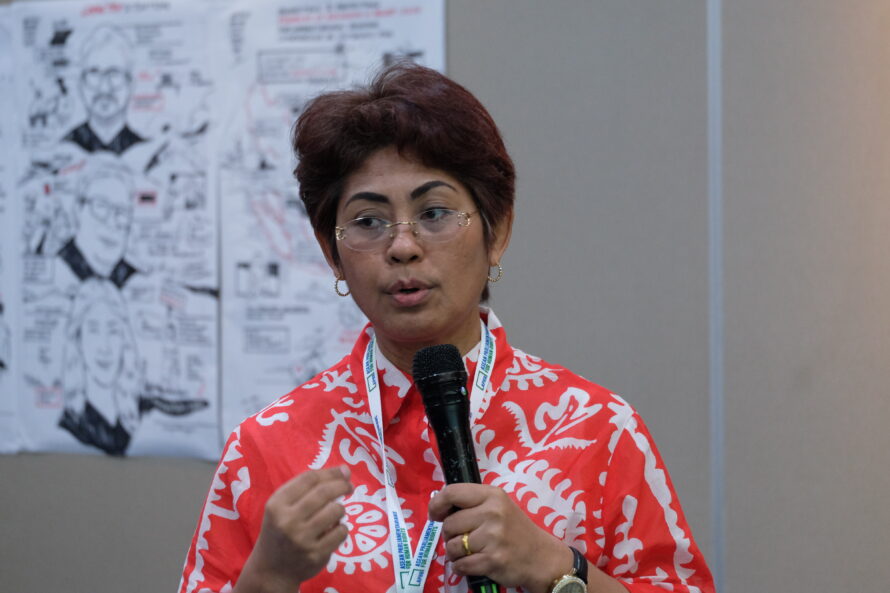
Mercy Chriesty Barends, APHR Chairperson and Indonesian MP. ©APHR2024
ASEAN Parliamentarians for Human Rights (APHR) was founded in June 2013 with the objective of promoting democracy and human rights across Southeast Asia. Our founding members include many of the region's most progressive Members of Parliament (MPs), with a proven track record of human rights advocacy work.